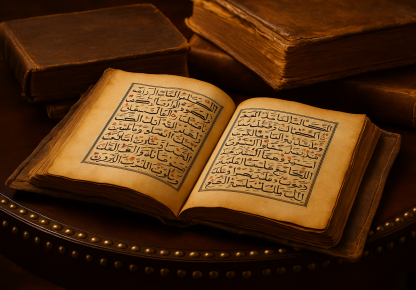Are There Contradictions in the Quran? How to Approach Seemingly Conflicting Verses
As we study the Quran more deeply, many of us encounter a puzzling question: why do some verses appe...



As we study the Quran more deeply, many of us encounter a puzzling question: why do some verses appe...


Many learners of the Quran eventually encounter this question: why are some verses repeated over and...


As the pace of modern life accelerates, meditation has gained popularity as a practice to relax and...


Studying the Holy Quran is a very important and blessed practice for every Muslim, which not only en...
